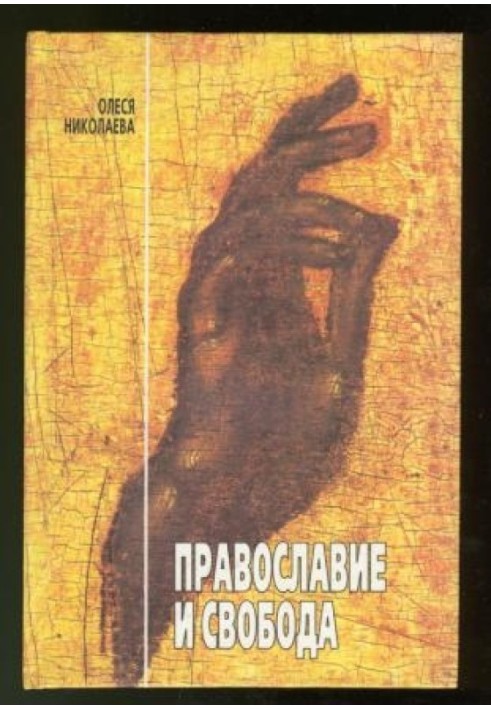Orthodoxy and freedom
 Instant download
Instant download
after payment (24/7)
 Wide range of formats
Wide range of formats
(for all gadgets)
 Full book
Full book
(including for Apple and Android)
It is always a pleasure to present talented work. And Olesya Nikolaeva’s book “Orthodoxy and Freedom” is undoubtedly marked by God’s gift of increased talent. Its focus is on the problem of free will, that is, the problem that has been a painful question for many (and often outstanding) minds not enlightened by the light of God, but which receives its natural resolution only in the non-evening light of Revelation. After all, it is in its rays that the unshakable fact is revealed that freedom, that is, in the words of V. Lossky, “the ability to determine oneself from oneself,” and “gives a person a feature that distinguishes him: to be created in the image of God, that feature that we we can call it his personal dignity”[1]. The Fall distorted and perverted this primordial dignity. “By disobedience to God, which manifested itself as a creation of the will of the devil, the first people voluntarily fell away from God and clung to the devil, introduced themselves into sin and sin into themselves (see: Rom. 5:19) and thereby fundamentally violated the entire moral law of God , which is nothing more than the will of God, requiring one thing from a person - conscious and voluntary obedience and forced submission”[2]. True, free will as the original gift of God was not completely lost by man, but he was no longer able to return it in its former purity. Only the Savior of the world could do this. Therefore, as St. John of Damascus says, “The Lord, having taken pity on his own creation, which voluntarily accepted the passion of sin, like the enemy’s sowing, took in the disease entirely in order to heal as a whole: for “the unaccepted incurable." And what is received is saved. What fell and suffered first, if not the mind and its rational aspiration, that is, the will? This, therefore, needed healing - after all, sin is a disease of the will. If He did not accept the rational and thinking soul and its will, then He did not heal the suffering of human nature - that is why He accepted the will.”[3]. And thanks to this perception of the human will by the Savior, the path to the Kingdom of God was opened for us - a narrow and cramped path, but the only one. And this Kingdom is only for those who freely choose this path, and it is acquired only by the feat of supreme freedom, that is, by voluntary submission to the will of God. This is what is said in the book of Olesya Nikolaeva. Its great advantage, in our opinion, is the fact that freedom is written freely here. The composition of the book, its style, speech patterns are free. Thought flows smoothly, not seething like a muddy stream in front of the artificial dams of false antinomies of mundane reason. But one feels that this freedom is the fruit of the author’s many spiritual struggles, past quests and turmoil, that is, the fruit of personal spiritual experience. It is precisely this “experienced” character that gives Olesya Nikolaeva’s work persuasiveness. Of course, her book is by no means a theological and scientific treatise and does not pretend to be so. Hence, it is hardly possible to demand from the author the utmost and jeweler precision of formulations and individual statements. This book is rather a theological-philosophical essay or even a theological-journalistic and apologetic work. But, being such, the work of Olesya Nikolaeva is entirely based on the Holy Scriptures and patristic Tradition, which is undoubtedly its great dignity. And the author’s literary talent makes the treasury of Scripture and Tradition accessible to a wide range of Orthodox readers, which at present seems especially urgent. Therefore, I think that Olesya Nikolaeva’s book will attract the attention of both people knowledgeable in theology and those who are just entering the “narthex” of theology.
Professor of the Moscow Theological Academy and Seminary, Doctor of Church History A.I. Sidorov
© Moscow Compound of the Holy Trinity Sergius Lavra. 2002With the blessing of His Holiness Patriarch of Moscow and All Rus' Alexy II
Data sheet
- Name of the Author
- Олеся Николаева Александровна
- Language
- Russian

















